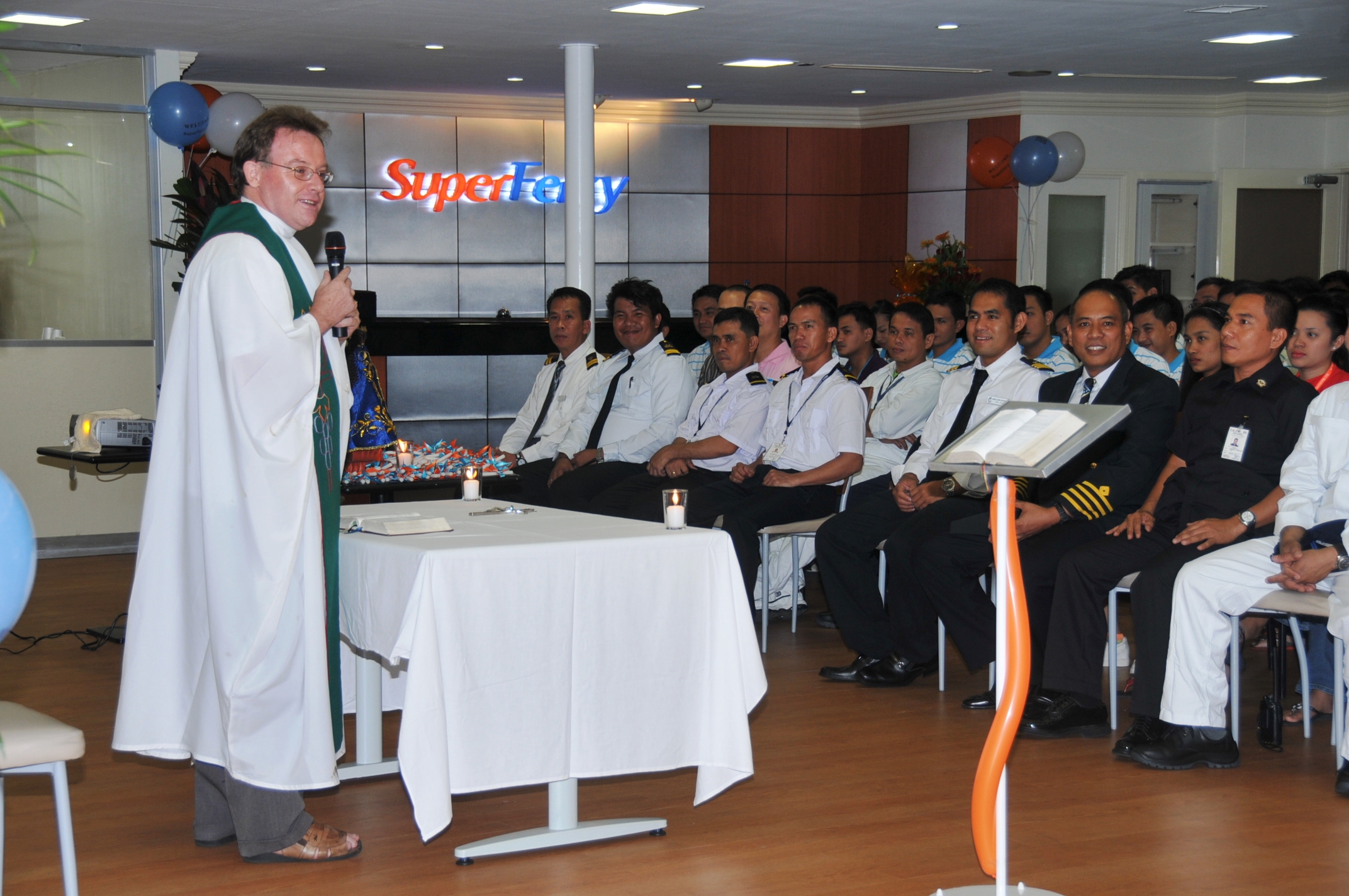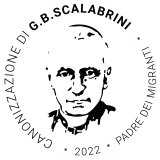Stella Maris, the scalabrinian network of aid and support for sea workers
What would happen if one morning the ships that carry 90 percent of goods globally stopped? Father Paulo Prigol, a Scalabrinian missionary, has no doubt: “Our world would go haywire. We owe a lot to the seafarers and fishermen who every day allow us to have everything we want on our tables.” A difficult and dangerous job that puts a strain on physical and mental health. This is well known by the Scalabrinian Missionaries, who for more than 100 years have been working alongside seafarers with Stella Maris, a network of spiritual support and assistance, present in 300 ports in 54 countries around the world.
This ministry of presence is grounded in the origins of the Scalabrinian Congregation, when St. John Baptist Scalabrini sent his missionaries to ports to welcome Italian migrants. Father Paulo is chaplain of the Stella Maris center in Manila and general coordinator for the Asia apostolate: “We have 700,000 seafarers in the Philippines, and in our center we assist 200 of them every day. In addition to spiritual guidance, we offer board, lodging and legal advice. Many come to us without documents and can fall into the net of human trafficking. We check, also, whether their labor contracts are in order. When they come out of our gates, we are sure they have a job or are about to return to their countries. The most beautiful thing about what we do is to see the joy of a man or woman telling us, “I finally have a job and can provide for my family.” This is our mission as Scalabrinians.”
Volunteers and missionaries at Stella Maris centers maintain a relationship with seafarers even when they are traveling. “We have a list of people who have passed through our centers and we send them something that we think will help them: a Gospel passage, a reflection. These are thoughts that for a seafarer far from home can make a difference,” Father Paulo continues.

“I have in my heart a boy who came from the southern Philippines and wanted to be a seafarer to help his family. He stayed with us for three years because he could not find work. Throughout this time, we have tried to convey hope above all. We don’t just think about their material needs, we encourage these people, we tell them, “don’t give up, you have a family.” Like a father who takes care of his children does. Today that boy has become a 39-year-old man and works as a seafarer around Europe. He still writes to us.”
This summer the Stella Maris network launched the “No shipping, no shopping” campaign to thank seafarers for their valuable work. “We look at what we buy: it comes from all corners of the world. But behind that merchandise, there is someone who transports it to us. We imagine this person leaving their country, their family, and doing this job for 18, sometimes 24 months. I don’t think society is aware of the sacrifices that seafarers and fishermen make. During the pandemic the planes stopped, but the seafaring world did not.” The war in Ukraine and the weeks-long blockade of ships containing grain is a tragic demonstration of the importance of sea transport.
The Stella Maris network is also involved in defending workers’ rights, as Father Bruno Ciceri, head of the Apostleship of the Sea within the Dicastery for Service to Integral Human Development, tells us. It has been fighting for years for the rescue of Asian fishermen. “They are slaves who spend more than five, six years aboard 30-meter-long fishing boats without ever touching land. Not to mention the risks they take while sailing: two years ago a ship carrying 5,000 cows from New Zealand to China ran into a typhoon and sank. There were 43 people on board; two were saved. The most tragic thing was that the New Zealand government imposed a stop on the export of cows not because 41 seafarers had died, but because they had lost 5 thousand cows. Profit is worth more than human life.”

Seafarers and fishermen also suffer from loneliness. “The primary need is always the contact with their families. With the pandemic, our ministry of physical presence became a ministry of virtual presence. We could not go on board, the borders were closed, and about 400,000 seafarers were stranded on the ships. Many of their family members were sick with covid and they couldn’t do anything, they couldn’t even attend funerals. This created a lot of psychological pain and stress,” Father Bruno continued. The Stella Maris network created the “Chat with a Chaplain” app: “In any latitude and at any time they can call us and talk to us. We listen to them, pray with them and this helps them face another day at sea. Our model is Scalabrini: this bishop who, seeing his parishioners leave in search of work, wanted them not to be left alone. We have responded to this call and try to be at the service of all, we are Samaritans of the sea.”
For Father Paulo, “the beauty of this work is being able to see God in the people we meet. We don’t ask what religion they profess, but we talk to them about values and challenge them to maintain them over time. Serving migrants, seafarers and fishermen allows you to look at a God who is on the move. Today he is there, tomorrow he is gone. He is an itinerant God, like Jesus who never stayed in one place. We are able, however, to follow the road they take. We are part of that road: we walk with them and with God who always guides them.”


